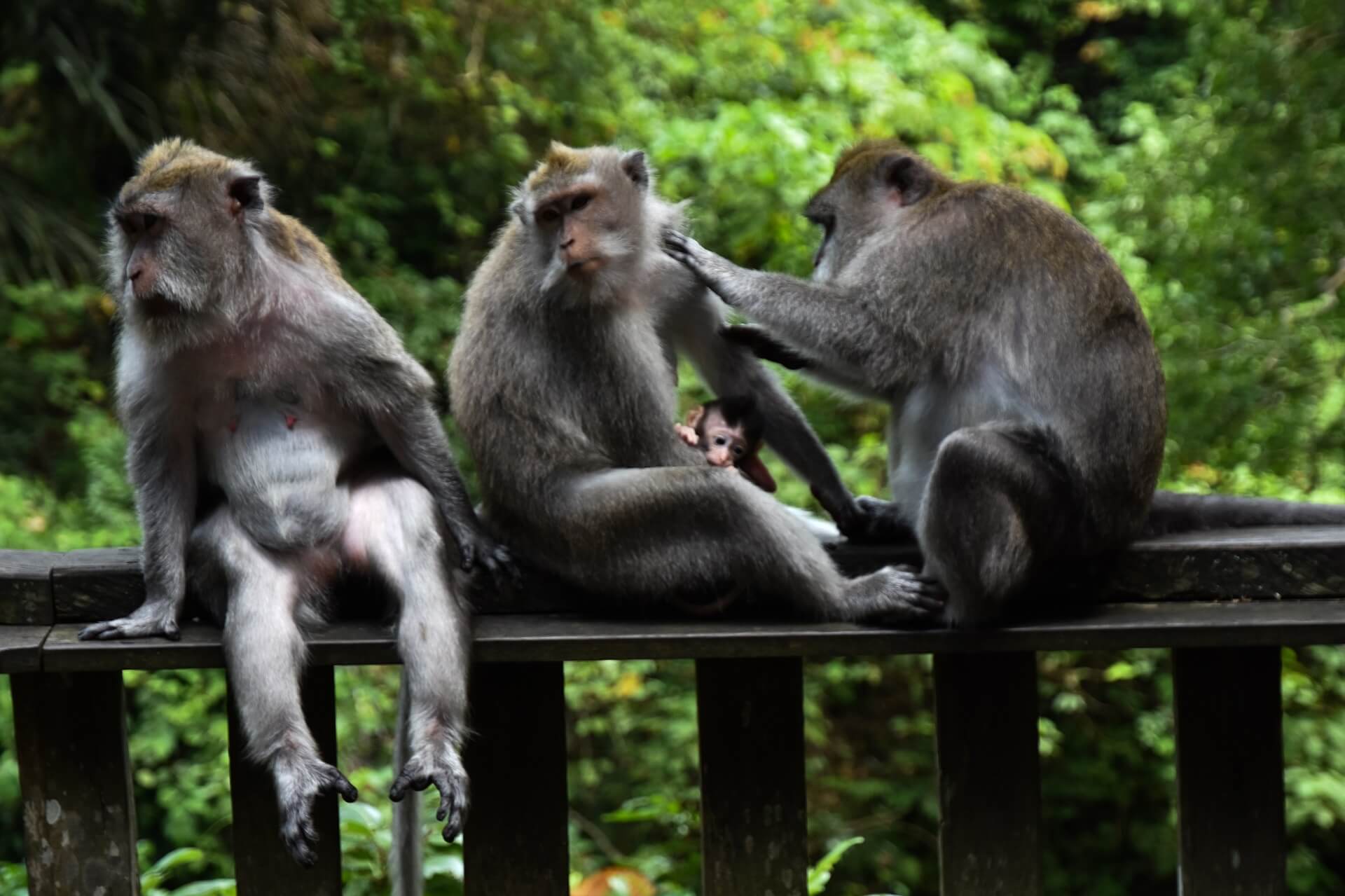
DELVING INTO THE
VIBRANT CULTURE
Discover Balinese dance at Monkey Forest, Ubud. Experience graceful movements, vibrant costumes, and enchanting music, immersing yourself in Bali's cultural beauty.



Lubdhaka Dance
Lubdaka dance, also known as Tari Lubdaka, is a traditional Balinese dance that originated from the village of Petulu in Ubud, Bali. This dance is inspired by the ancient Mahabharata epic, specifically the episode of Lubdaka. The Lubdaka dance is a captivating performance that tells a poignant story through graceful movements, intricate gestures, and vibrant costumes.
The dance narrative revolves around the character of Lubdaka, a fisherman who encounters a challenging situation. Lubdaka is depicted as a wise and compassionate figure, known for his selflessness and devotion to his community. The story explores themes of loyalty, sacrifice, and the triumph of good over evil.
PERFORM TIME
Saturday and Sunday 11 am and 4 am


Frog Dance
The Balinese Frog Dance, also known as Tari Katak in the local language, is a traditional dance form that originates from Bali, Indonesia. This unique dance is inspired by the playful movements and characteristics of frogs, capturing their agility and energy through the dancers' expressions and choreography.
Best performance of the frog dance is an abbreviated version of much longer, match more involved the story of the Gods sacrifice of one self for others, loyalty, constancy and perseverance.
The triumph of the forces of good and transformation that are the hallmarks of all great myths, it would take many hours and hundreds of performers to bring the entire epic to you in the time we have available, we will present a shorter and lighter story.
The triumph of the forces of good and transformation that are the hallmarks of all great myths, it would take many hours and hundreds of performers to bring the entire epic to you in the time we have available, we will present a shorter and lighter story.
PERFORM TIME
Sunday 11 am and 4 am


Ngaben
Also known as Pitra Yadnya, is a traditional Balinese Hindu cremation ceremony that holds great cultural and spiritual significance in Bali, Indonesia. Ngaben is performed to honor and release the soul of the deceased from its earthly existence and guide it to the realm of ancestors or Moksha (liberation).
The ceremony is seen as a joyful event, despite being associated with death, as it is believed to be a vital step in the soul's journey towards reincarnation. Ngaben reflects the Balinese Hindu belief in the cycle of life, death, and rebirth.
The Ngaben ceremony typically involves several stages and rituals. The process begins with a series of preparations, including the construction of an elaborate bamboo and wood structure called a "bade" or "wadah," which represents the body of the deceased. The body is carefully prepared, cleansed, and dressed in ceremonial attire before being placed inside the bade.
The Ngaben ceremony typically involves several stages and rituals. The process begins with a series of preparations, including the construction of an elaborate bamboo and wood structure called a "bade" or "wadah," which represents the body of the deceased. The body is carefully prepared, cleansed, and dressed in ceremonial attire before being placed inside the bade.
TIME INFORMATION
Mass Cremation Ceremony Held Every 5 Year
News & Events

DONATE TO MONKEY FOREST SANCTUARY UBUD
‘Wildlife in the world can only be protected by the love of compassionate hearts in the world!’
You can help save endangered species now and funds conservation action. Monkey Forest Ubud welcomes any donations big or small.






